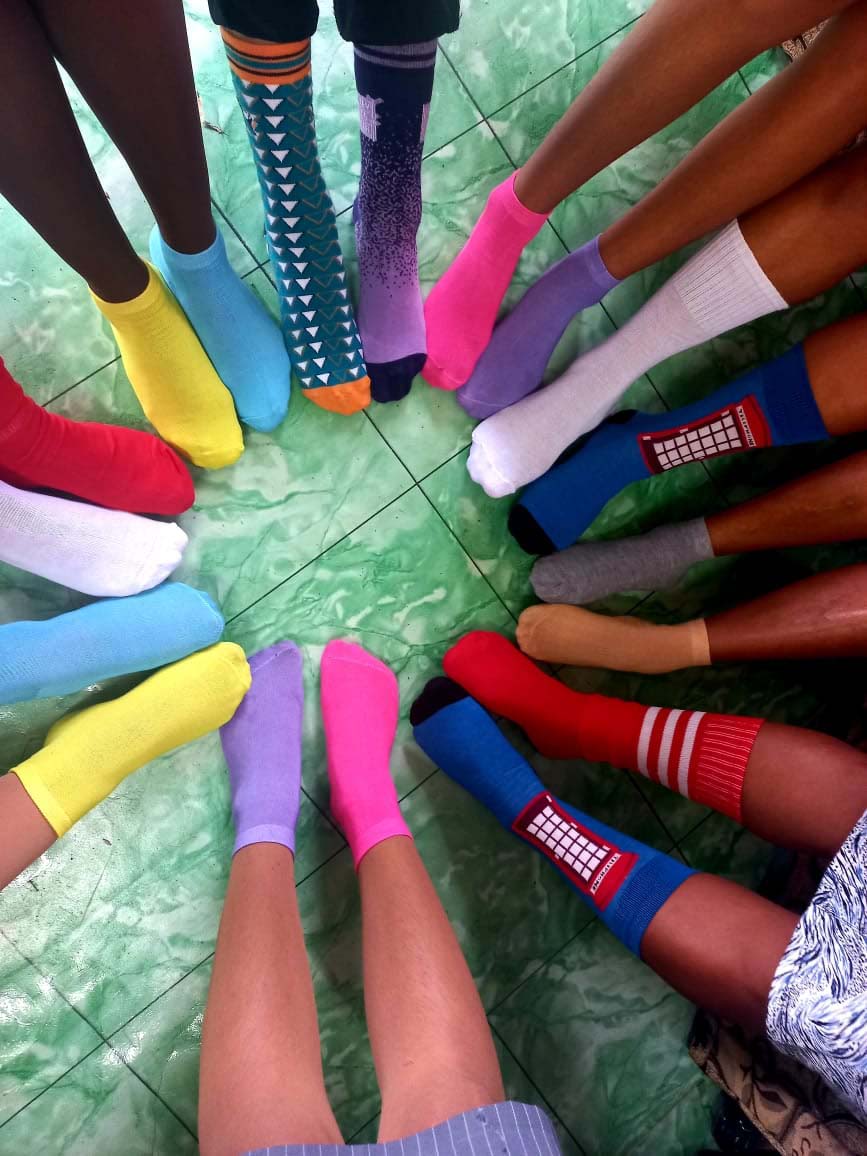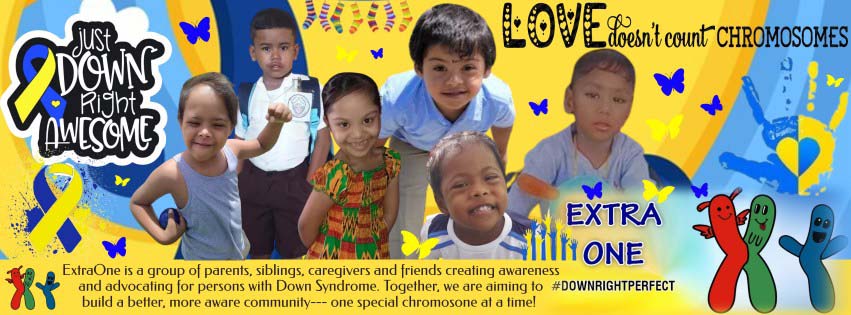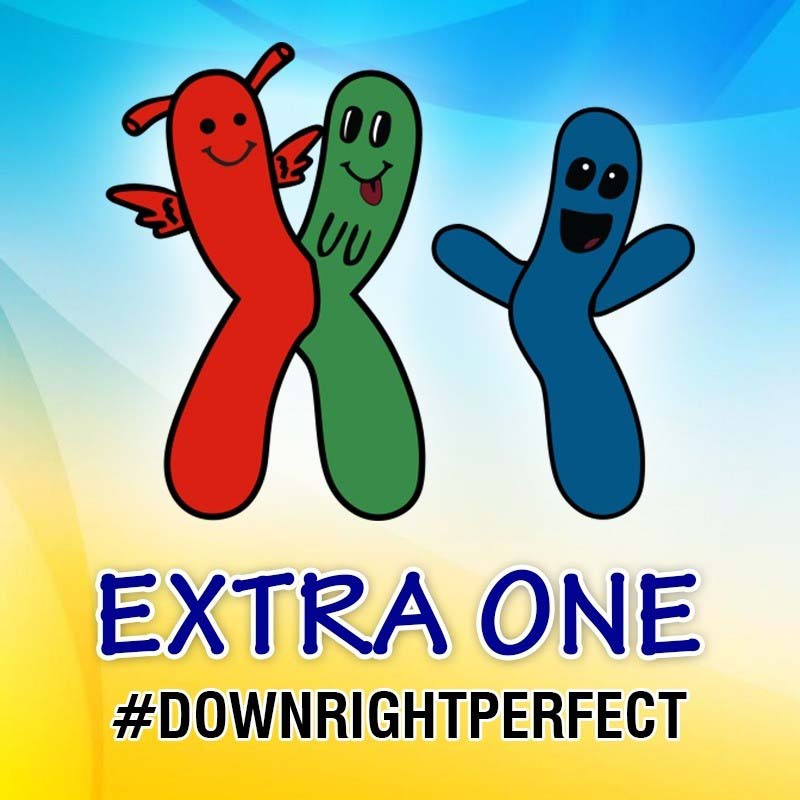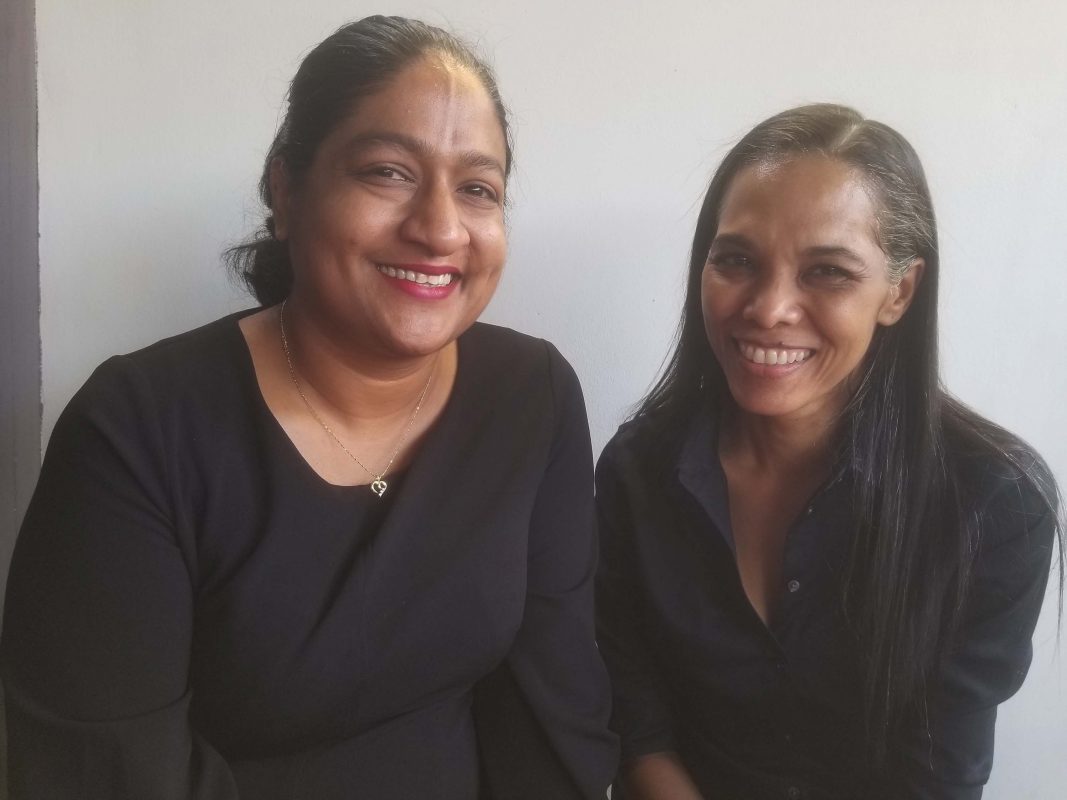Nine years ago businesswoman Han Granger-Gaskin gave birth to her fourth child and hours after his birth she was told that from all indications he had Down syndrome. For her, it changed nothing as her sweet baby son was still who he was and she was ready to nurture him in the same manner that she has mothered her other children.
Five years later attorney-at-law Azeena Baksh gave birth to her first child and she was also given the news that he had Down syndrome. For her, acceptance of his diagnosis was key along with a great support system.
Over the years, both women have ensured that their sons are supported in every way possible, but they do not paint a romantic picture that every day is ‘honky dory’. While some days have been overwhelming and even frustrating, they also found that there is tremendous support in the public system. They have also seen the need for more to be done as it relates to the awareness of the condition and for parents to be pointed in the right direction as they seek to help their children.
And so it was with that in mind that they started Extra One GY, just in time for World Down Syndrome Day which is observed on March 21 annually. While it is mainly a Facebook page which provides pertinent information about the condition, the founders do not rule out it blossoming into much more in the future. Apart from Granger-Gaskin and Baksh there are five other mothers involved and on the Facebook page they described their purpose as being able to advocate for and promote acceptance of persons with Down syndrome; and support for the people around them.
According to the Mayo Clinic website, Down syndrome is a genetic disorder caused when abnormal cell division results in an extra full or partial copy of chromosome 21. It states that the extra genetic material causes the developmental changes and physical features of Down syndrome. The clinic said Down syndrome varies in severity among individuals, causing lifelong intellectual disability and developmental delays. It’s the most common genetic chromosomal disorder and cause of learning disabilities in children. It also commonly causes other medical abnormalities, including heart and gastrointestinal disorders.
Tongue sticking out
Baksh explained that children with Down syndrome are born with certain features and one of which is their tongues sticking out of their mouths and this is what first alerted her son’s father and the midwife to the possibility of him having the condition.
She said the manner in which she was told of her son’s condition was what helped her to accept the news and she noted that it is very important for doctors and midwives to be careful when breaking the news to parents, especially new moms.
“I think it is not a common thing. Some persons are really harsh about it but my experience was very gentle and I was grateful for it,” she shared.
Other features include children having a space between their big and second toes, a crease in their palms or the bottom of their feet, a flattened nose and short necks; trained personnel will recognise all of these features immediately.
Most of the children are also born with what is commonly known as a hole in the heart for which the medical term is an atrial septal defect; the hole occurs in the wall (septum) that divides the upper chambers (atria) of the heart. This condition does not affect either of the organisation’s founders’ sons.
Baksh said when she got the news, initially it did not register as she had a “baby in my hands that was absolutely beautiful” and it was after she went home from hospital and did her own research and read about the milestones that she became somewhat anxious.
“You have a level of anxiety…,” Baksh said, adding that she was not in denial as she had quickly accepted it for what it was.
She explained that the period from being told to acceptance is very crucial but when there is a strong support base then navigating those initial days and months become much easier.
“It becomes easier when you tell your family members because the more you tell them the more they become aware and the more they become accepting and importantly they treat the child as a normal child because children with Down syndrome thrive in an inclusive environment,” she pointed out.
It was a big deal for both women when their sons were given the all clear as it relates to the heart condition.
For about three years it is important to have regular doctor check-ups for the child and also for them to be fully vaccinated. The paediatrician will set a plan for the child and it is important that parents keep to that plan. She pointed out that some children may eventually have issues with their eyes and hearing, so regular doctor visits are important.
Baksh said most of her and her husband’s anxieties were removed because of the great support system through which they learnt of the work of the Ptolemy Reid Rehabilitation Centre.
Granger-Gaskin noted the work of the centre and the extent to which it helps children and persons in need. “It is physical as well as speech, it is occupational…” she said of the therapy provided there. Baksh added, “they are absolutely kind”.
Baksh recalled the first time she visited the centre accompanied by her parents and husband.
“… By the end of the entire session everybody was crying, we were all crying because we watched them do the physio and the physio is hard for you as a mom because the way they do the physio the child will cry…,” she said, getting a little emotional as she remembered the experience.
But she reiterated that they are very kind and one just has to let the therapists do their work. After that experience her mom did not return with her, but Baksh noted that as parents it is their job to be tough for their children.
She stressed that children are automatically at a disadvantage if they are not taken for therapy, pointing out that there are instances where parents take their children initially, then discontinue the visits. It is important as well that parents do not keep away their children as early intervention is important.
Very kind
Granger-Gaskin recalled that the medical staff were very kind when they informed her of her son’s condition.
“He is here and he is mine so we will deal, that was pretty much it. He is my baby…,” was how he described her reaction to the news.
Granger-Gaskin has two adult children, aged 26 and 24, as well as a ten-year-old. Her older children, she said, were very supportive and she believes her last child changed their family. “I think it even made us better persons,” she said.
She noted as a parent of a child with Down syndrome you have to accept that you have a child who may never be independent and you have to reset your goals and start planning. She recalled having a conversation with her older children who told her that they would take care of their younger brother and she became very emotional.
Granger-Gaskin said she finds it shocking when she hears stories of people with Down syndrome who were never integrated into society by their parents. Told that some parents may find it difficult to navigate especially if they have to get public transportation as the child becomes older, Granger-Gaskin said once one is in the public system, “they bend over backwards”.
She said her son needed speech therapy, which was started at Georgetown Public Hospital but there is a diagnostic centre in the compound of the Cyril Potter College of Education which helps parents with a work plan and goals they should achieve. She said the centre provides transportation for children who need it.
Her son is at David Rose School for the Handicapped and she said that even during the height of COVID-19 children were picked up and taken for play sessions. She sang the praises of the school, which she said caters for children with different challenges but addresses all of their needs.
“If you don’t have the resources they would find a way, so there isn’t really an excuse,” she said.
Baksh said a key thing with children with Down syndrome is being kind and not harsh with them because the latter would see them resisting.
The mothers described their sons as being assertive and confident.
While these two mothers have braved storms they both admitted that there are days when it is overwhelming. Baksh pointed out that even for them to step out and put their children out there with the Facebook page has been overwhelming.
“You are not just dealing with your stories you have to deal with other parents’ stories and their stories are sometimes different from ours because with Down syndrome you have different spectrums and you know that once you start hearing all these stories your emotions are involved,” Baksh said.
Granger-Gaskin pointed out as well that not everyone has the same support system and she noted that in the world today with social media there is this façade of perfection that feeds over to what you are expected to be as a professional woman who has gotten to a so-called stage of success.
“And I think the downside of that is that it makes it very hard for you to ask for help… you can deal with things if they were all separate but when it all happens together – the iron stops working or the child is crying and I don’t know what to cook for dinner… I think it is that stage where you realise that you have to ask for help, that is the big epiphany moment,” Granger-Gaskin shared. When she asked, help came easily.
Baksh said there are the frustrating days when she gets home extremely tired, but her son is in his routine and for him it is play time; she has to ensure it happens. Co-parenting is extremely important and again she has a huge support base. She admitted that there are a lot of parents who have children with challenges who do not have a support system and have to do battles on their own.
Not qualified
The founders of Extra One GUY pointed out that they are not qualified caregivers or service providers but rather they know how much it helps to have someone to talk to.
“God knows where either of us would have been without that…,” Granger-Gaskin stressed.
They encouraged parents to explore all opportunities available to children with the condition, most of which are free, and move them one step towards becoming independent.
Granger-Gaskin stressed the importance of being comfortable with the fact that you have a child with special needs.
“It is not punishing you for anything, it is just life… People think they are being punished for something …,” she expounded.
The founders said through the organisation they hope to raise awareness, provide comfort and support.
“We just started. We literally, as two moms, sat down and said we need to get the information out there,” Baksh said.
“We literally just turned up with two bat and ball, we ain’t even clear the pitch yet,” Granger-Gaskin added.
They pointed out that there is little to no information on the internet about Down syndrome in Guyana, and what is there is negative. However, they are not in existence to change policies at their levels but just to raise awareness and help parents get the support they need. They hope parents or relatives and friends can read and listen to the expert information they have on the page.
Down syndrome knows no boundaries and the children also teach the adults that they have no boundaries; Baksh recalled the heart-warming scenario of her son waving off to a beggar on the streets whose face lit up.
“They do not know how to discriminate between the beggar on the streets and the man who wears a suit, the colour of the skin…,” Baksh said.
Granger-Gaskin added that the children teach adults about humanity.
Extra One GY can be found on Facebook and contact can be made through telephone number 600-6600









